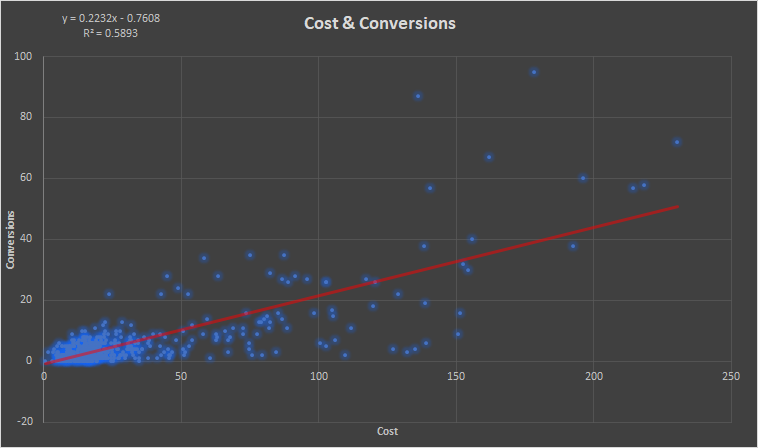When it comes to PPC marketing it is important to avoid guessing as much as possible. Regression analysis is an advanced tool and a predictive model. It can help take the guesswork out of the equation and bring your PPC marketing to the next level.
Regression analysis helps you make data-driven predictions about future outcomes by forecasting the relationship between multiple variables. From a PPC standpoint, you can use regression models to understand how certain controllable factors such as budgets and bids will impact certain KPIs like ROI or CPA. By being able to understand and predict the relationship between certain variables, you can make effective optimizations that can improve results.
What is a Regression Analysis?
A regression model is an algorithm that draws a relationship between one dependent variable and one or more independent variables. It works by finding a “line of best fit” through your correlated data that creates a formulated relationship between your variables, allowing you to make educated predictions based on that data.
To paint you a picture, below is a very basic Cost vs. Conversions regression analysis created from the historical data of a Google Ads campaign. We will use this to show how you can predict the number of daily conversions resulting from a certain daily spend.
We have an independent variable “Cost” (daily spend) and a dependent variable “Conversions” (daily conversions). The line going through the data points is the regression line, which is represented by the formula in the top left of the graph, which will be used to make predictions. Using the regression formula, we can predict that a daily spend of $50 will result in about 10 conversions per day.

Conclusion
Although regression analysis seems very complicated, it’s easy to create and with a little reading, it’s easy to grasp. In an industry that is becoming more and more automated it is important to make as many decisions based off of data as possible to eliminate risk and stay ahead of the curve.





